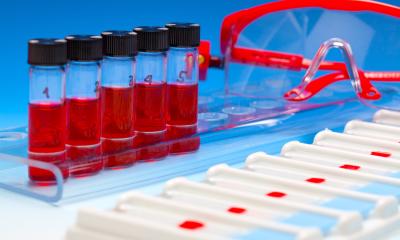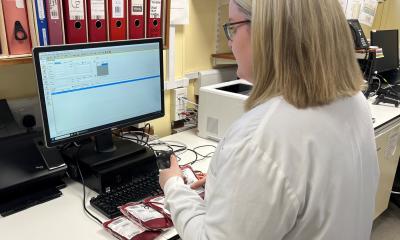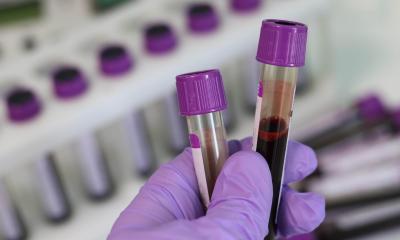UK's pathology services at the tipping point
Pathology services in the UK are struggling to cope with the increasing number of patient samples that need to be tested, according to a Cancer Research UK report* published today.

A growing and ageing UK population means that more people than ever before are being referred for cancer tests including biopsies and blood tests. One in two people will develop cancer at some point in their lifetime. But pathology staff numbers are not growing to meet the rising demand for tests, resulting in a lack of capacity for pathology services. These problems are similar to those seen for other cancer tests such as scans or endoscopies, and the report highlights the growing pressures on services performing tests.
As the number of new cancer cases continues to rise, the demand for these diagnostic tests will grow. Well-resourced testing services are crucial to the early diagnosis of cancer, which in turn is vital to increase survival from the disease. It’s important that cancer is diagnosed at an early stage when treatment is more likely to be successful.
The Cancer Research UK report recommends that action is taken now to address current and future workforce shortfalls. Those in charge of medical education need to train and employ more people in pathology, as well as other diagnostic health professionals, to meet the increasing demand for tests and to ensure a stable future for pathology services. The report also recommends that the Royal College of Pathologists update their guidance and look at ways to attract staff to train in pathology.
Up to 70 per cent of healthcare decisions taken in the NHS involve pathology based tests and investigations, and the concerns highlighted in this report aren’t just limited to cancer patients. Emma Greenwood, Cancer Research UK’s director of policy, said: “Diagnostic services, including pathology, urgently need support and investment to ensure that diagnoses aren’t delayed and patients benefit from the latest treatment. The UK’s cancer survival is lagging behind other European countries and improving early diagnosis through diagnostic services is one of the ways to address this. The diagnostic bottleneck will only get worse without action now and this involves addressing staff shortages in imaging, endoscopy and pathology.”
Professor Manuel Salto-Tellez, a Cancer Research UK pathology expert, said: “We need to act now before this situation gets worse. It’s vital that patients are diagnosed at an early stage when treatment is more likely to be successful and pathology plays a crucial role in this. “The number of cancer cases diagnosed each year is set to rise and the already stretched pathology services won’t cope unless we ensure more people are trained and employed in pathology. We must also make sure that existing staff have the support they need to do their job.”
Source: Cancer Research UK
23.11.2016





